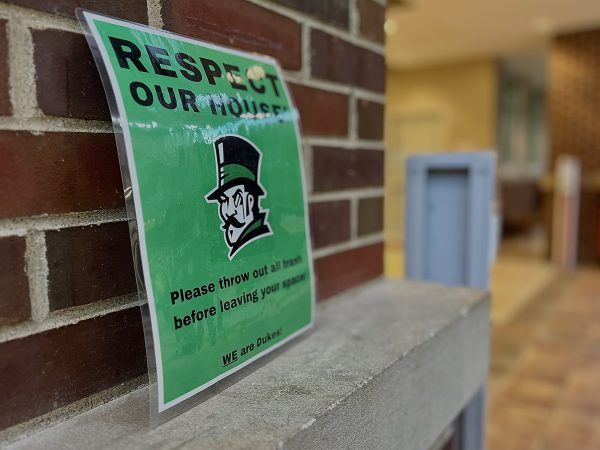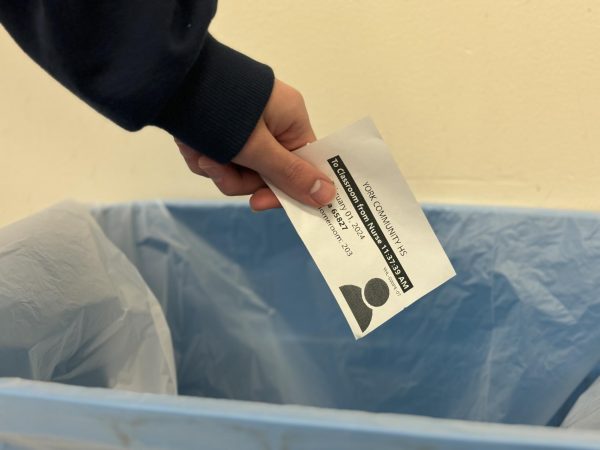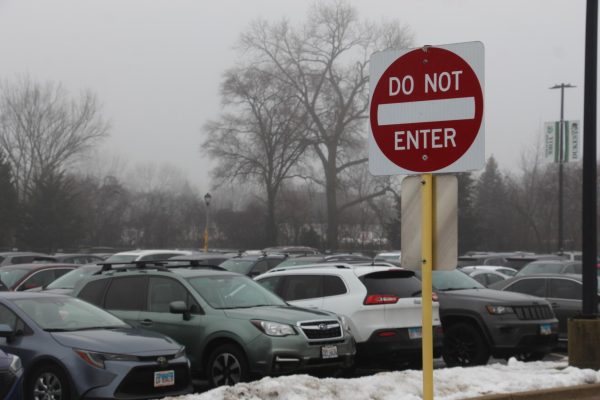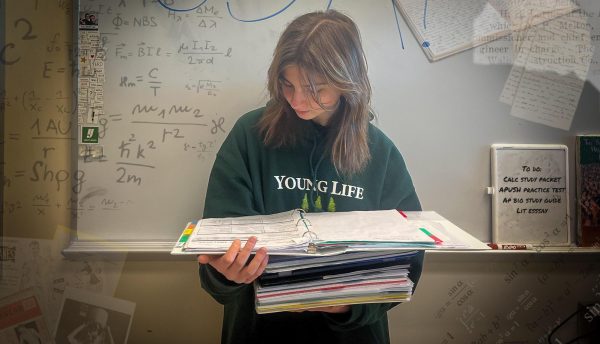York’s ambition keeps ACT scores high
As Illinois’ average composite ACT score remains around 20, York’s senior class of 2015 trumped the state’s average score by four points. Preceding the class of 2015, the class of 2014 saw the school’s highest average composite score in history at 24.1.
York educators attribute student success to the district’s major emphasis on what they are now calling “college and career readiness standards.”
These standards “are a very specific set of benchmarks or skills infused inside of the 9 through 12 curriculum,” said Dr. Covino, Assistant Principal for Curriculum and Instruction.
Note these standards do not associate with content, since, on standardized tests like the ACT, students are not expected to recall specific information such as names or dates. Providing the central focus for the curriculum, educators must keep check on assignments and tests given out in class to see how they align with the standards.
Changes have been made little by little over the years to further the focus, which is “why we’ve seen our scores stay nice and high,” said Mrs. Keller, math and science division chair.
One relatively new aspect is the introduction of skill-based reading. Reading can seem like an all-or-nothing kind of skill, leading some students to say, “I don’t get this book.” However, by integrating certain skills to focus on, “it becomes more, ‘I understand what they’re saying, but you’re asking for more and I don’t understand what you’re asking,’” said Mr. Doherty, English department chair. This, in turn, “allows teachers to help kids in a more targeted way, because students can articulate what skills they don’t understand,” he said.
In addition, communicating with students which assignments and readings are primarily geared toward preparation for the ACT makes it easier for them to make that connection, said Keller.
York educators realize that a teacher “will reach about 80 percent” of the students in class naturally, meaning they will do an assignment or be involved in a discussion and say, “Yes, I get this,” said Doherty.
Survival of the fittest doesn’t apply here: it’s not just about the vocally assertive students. The other 20 percent may require additional explanation, an enrichment assignment, or a whole different class activity, said Doherty, “which allows everyone to move forward.”
Math, another seemingly solitary subject, works differently at York as well.
“We ask students to do a lot of original thinking, a lot of problem solving,” said Mrs. Brown, math department coordinator. “They’re used to that here, and it a lot of schools that isn’t the case.”
Thanks to such applications as the Math Lab, students are encouraged to work with students, not just with teachers, said Brown, before, during, and after school to get extra help with math. York’s values of community and cooperation reach students from all levels ability.
The hallways hear less of “What’s the answer to number 17?” and more of, “Explain to me again how you solved that problem,” said Brown.
“I think my favorite is the number of times you hear students in the Math Lab or in our classes saying to each other, ‘Oh, I understand now.’ The kids have an emphasis on what’s going on,” she said.
For this year’s juniors, the ACT isn’t the only test worth preparing for. The PARCC (Partnership for Assessment of Readiness for College and Careers) test was the topic of converrsation amongst all Illinois educators when it was introduced last year. At this point, the gossip has gone quiet–debuting this spring, PARCC is officially in place.
The test will not replace the ACT but the PSAE. Indeed, the test may cause some classes to rearrange curriculum, and some small changes may have been introduced already; students may have noticed on assessments they’ve taken in class “questions that [they’re] used to, but then at the end of it there’ll be another question that gears towards the PARCC test,” said Doherty.
Like all major changes in education, there may be a “bit of a disruption at the end of the year,” Dr. Covino said.
What will not be changing, though, is York’s investment in their students’ success.











